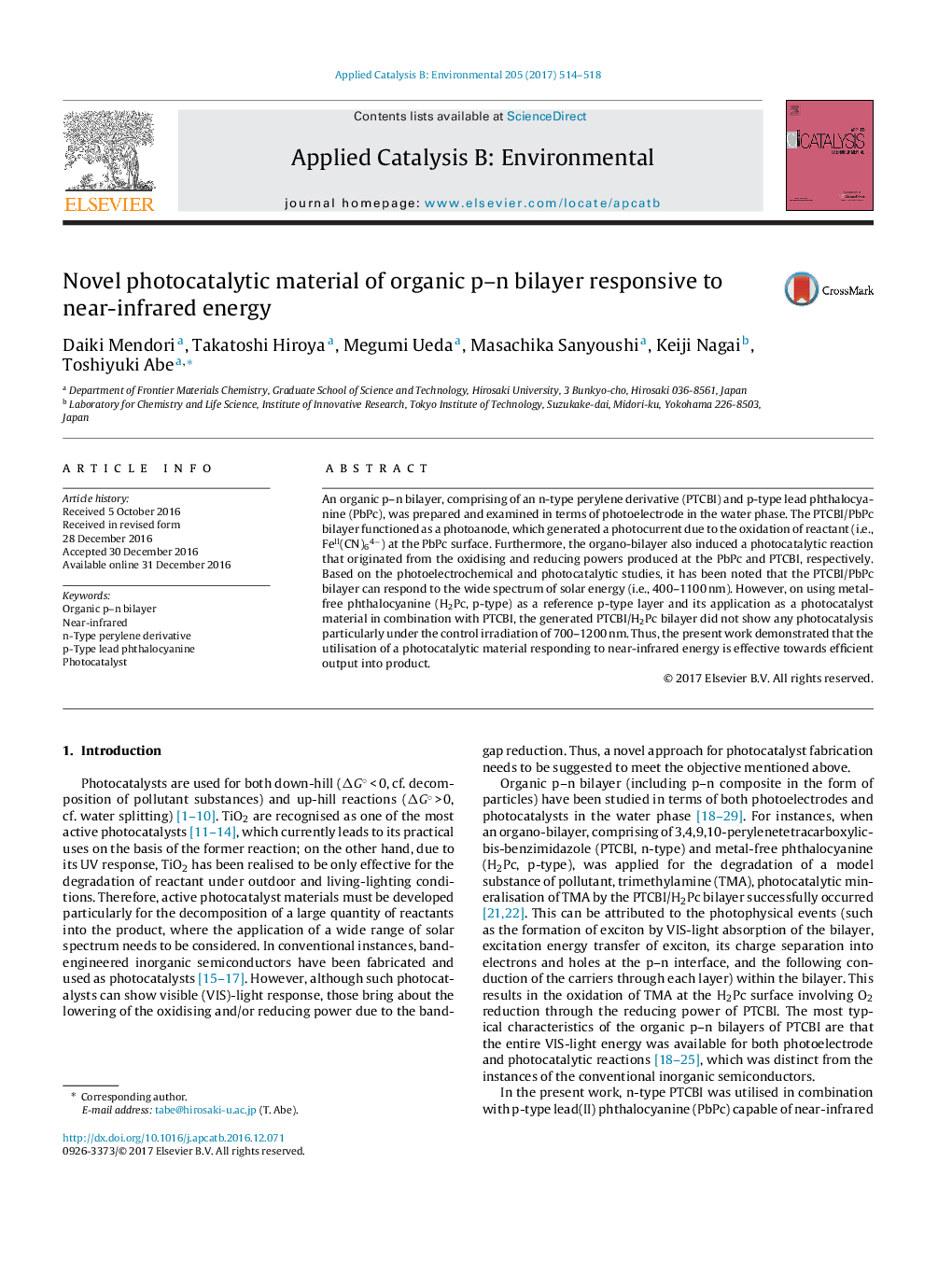| کد مقاله | کد نشریه | سال انتشار | مقاله انگلیسی | نسخه تمام متن |
|---|---|---|---|---|
| 6454380 | 1418815 | 2017 | 5 صفحه PDF | دانلود رایگان |

- A new photocatalyst material of organic p-n bilayer, responding to near-infrared energy, is shown.
- The present photocatalyst is superior to an organo-photocatalyst that is responsive to only the full visible-light energy.
- This work demonstrates that the utilisation of a wide solar spectrum is necessary for efficiently driving a photocatalytic reaction.
An organic p-n bilayer, comprising of an n-type perylene derivative (PTCBI) and p-type lead phthalocyanine (PbPc), was prepared and examined in terms of photoelectrode in the water phase. The PTCBI/PbPc bilayer functioned as a photoanode, which generated a photocurrent due to the oxidation of reactant (i.e., FeII(CN)64â) at the PbPc surface. Furthermore, the organo-bilayer also induced a photocatalytic reaction that originated from the oxidising and reducing powers produced at the PbPc and PTCBI, respectively. Based on the photoelectrochemical and photocatalytic studies, it has been noted that the PTCBI/PbPc bilayer can respond to the wide spectrum of solar energy (i.e., 400-1100Â nm). However, on using metal-free phthalocyanine (H2Pc, p-type) as a reference p-type layer and its application as a photocatalyst material in combination with PTCBI, the generated PTCBI/H2Pc bilayer did not show any photocatalysis particularly under the control irradiation of 700-1200Â nm. Thus, the present work demonstrated that the utilisation of a photocatalytic material responding to near-infrared energy is effective towards efficient output into product.
190
Journal: Applied Catalysis B: Environmental - Volume 205, 15 May 2017, Pages 514-518